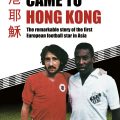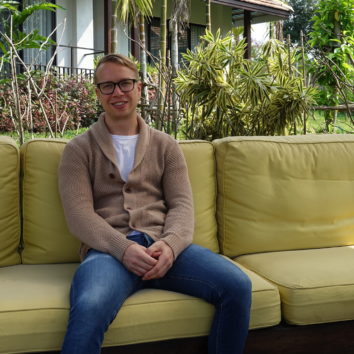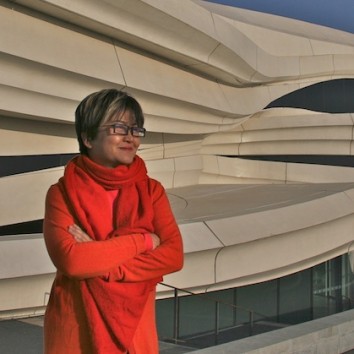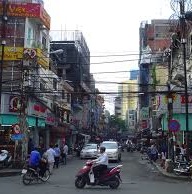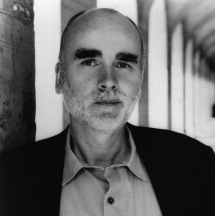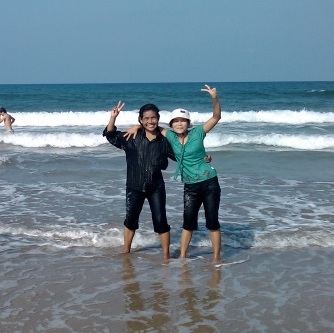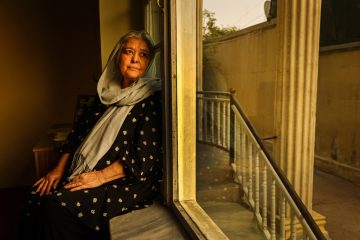
‘I heard a scream and realised it was me’
— April 30, 20232023 Nobel Peace Prize nominee Mahbouba Seraj recalls growing up in Afghanistan’s ‘best years’, exile in the US and feeling compelled to confront the Taliban
I was born in Afghanistan in 1948. My aunt chose my name. Mahbouba means “beloved”. If you take the “a” off the end, it becomes a man’s name. I didn’t like my name in the beginning – why would I be given a name that was just one letter away from being a man’s name? But as I grew up, I began to like it because of its meaning.
I’m the eldest of four and have a sister and two brothers. When I was about six years old, I told my father I wanted him to respect my personality. That set the tone. He had tears in his eyes when I said that. He was very progressive, so was my mother.
I grew up in the best years in Afghanistan, when Mohammed Zahir Shah was king. The country was poor, peaceful and beautiful. My father was a doctor and I was proud of passing the exams to study medicine, but I ended up graduating in history from Kabul University.
There was a young socialist movement that started in Kabul and I joined as a student. It was – and still is – poverty that bothers me more than anything else because poverty prevents you from becoming who you have the capacity to become, because your attention is focused on feeding yourself and your children and having a roof over your head. Education and innovation go out the window.
Comfortably numb
I met my husband in Kabul. He was the son of a businessman. It was a love marriage. Perhaps if it had been arranged it would have lasted longer, but it lasted just a few years.
Mohammad Daoud Khan became our first president in 1973, replacing the monarchy. And in 1978, the revolution happened; it was a Communist movement mainly started by Russia. The Russians came in officially in 1980, but the movement was already there.
I was put in prison with my husband and his family for 10 days. His family had a lot of money and was well known. As soon as we came out of prison, we went to Germany, and from there to the United States. After a short time in New York, I went to Kansas and then California.
I worked in hospitality and with the native Indians in Santa Fe, New Mexico. I was a good citizen, I paid my taxes on time, I voted and never even had a speeding ticket. I enjoyed my time in the US, but I felt numb. Mahbouba wasn’t there.
Return to rubble
In 1999, I saw the photo of the woman being shot in Kabul Stadium and it shook me to my core. As a girl, I’d participated in parades in that stadium in front of the king. Then in 2001, when I saw on the news they’d blown up the Bamiyan Buddha statues, I heard a scream and realised it was me.
Afghanistan was open, and I knew it was time to go back. I found a home for my dog, gathered a bag of medication and flew to Kabul. The city had turned to rubble.
Agent of change
I heard the hospital for women was running a training session, so I offered to do translation. After that, I got very involved and was especially concerned with the high maternal mortality rate.
I started working for an NGO doing surveys; we travelled all over Afghanistan, finding out about people’s lives and how far they were from a hospital.
When Mary Akrami began opening women’s shelters, I helped her. Everything I did was working for women in one way or another. I taught women empowerment at the American University, a project started by Goldman Sachs. It was a time of change in Afghanistan. I felt I’d played a part in changing Afghanistan’s future.
Raising women’s voices
Ten years after I returned to Afghanistan, I started noticing the positive changes in the country. It was such a pleasure working with the women of Afghanistan.
I worked with an organisation called Equal Access, disseminating information; it was the easiest way to pass on a message and help people. And from 2010, for about seven years, I had a radio programme, Our Beloved Afghanistan by Mahbouba Seraj. It was about the achievements of Afghan women.
I travelled around Afghanistan with a tape recorder, cassettes, a solar panel and a battery – a one-woman show. The reason the people know me today, why they have accepted and love me, is because they know what I have done.
I’d sleep in guest houses if I could find them and, if not, I’d bring a pillow case and sheet and sleep on cushions on the floor and talk to them about their problems, aspirations and hopes for their daughters.
Shelter from the storm
In 2016, I began to stay more in Kabul. When Mary became the director of the Afghan Women’s Network, I took over from her as the executive director of the Afghan Women Skills Development Centre and ran the shelter.
The women there have fled lots of atrocities – from husbands and in-laws who beat them to family members trying to force them into marriage. We teach the women skills and make them literate. The shelter became their home and for a lot of women it still is. The UN supports us.
From bad to worse
The Islamic Republic was going from bad to worse. As women, we tried to talk to the governments of the world, whoever was involved in peace talks, to say we all wanted to sit at the table.
There were supposed to be women who would represent all of the women in Afghanistan, but it wasn’t like that; there weren’t enough women – when your numbers are greater, your voice is heard better.
A whole bunch of them went and sat down behind tables with the Taliban and then things got really messed up. Personal interests got involved, political parties got involved and Afghanistan was forgotten.Things were not clear until August 15, 2021, the day the Taliban came [back to power]. History will talk about it at some point. I hope I will still be alive to know exactly what happened. President Ashraf Ghani was not expected to run away the way he did. Everything fell apart in a few hours.
When the Americans started moving out, it was a disaster. I received calls from everyone – the Germans, the Americans – asking me if I wanted to get out. It was not the time to get out. What was I supposed to do with my girls? I can’t get 20 million women out. Someone has to be here, so I decided to stay.
Back to the Dark Ages
One of the things that has always been interesting to me is bearing witness. I’m a piece of living history because there is no one like me any more. The people who are my age have passed away or haven’t been in Afghanistan for the past 20 years. I am there and I want to be there for as long as I can.
All of the women’s rights are being taken away. It started with girls not being allowed to go to school, then they couldn’t go to university, then they couldn’t work. After 2003, the Taliban were gone, but we still had to fight the Taliban mentality and it took us close to 20 years to finish it, and now we are going to run another cycle.
Not a martyr
As long as the world reports on what is happening, it keeps me safe. I’ve been told I’m a target for Isis and the Taliban has offered to protect me. Soon after I return to Afghanistan, I will have two Taliban officers guarding my house.
I don’t know whether I want it or not – but who doesn’t want protection? I do. I’m not a martyr; I’m scared but I’m careful. My commitment is a lot more than my fear. Death is a part of life, you can’t separate it.
Thank God I’ve lived this long, and I’ll hopefully still be alive to celebrate my 75th birthday in May.
When I heard I was nominated for a Nobel Peace Prize I was so surprised, it made me so happy; thank you, Lord, maybe someone in this world saw what I was doing. I never wanted to be at the forefront of anything.
A week before the Taliban came, I started getting calls from the media. I’d always helped the newspaper people in Afghanistan. And in September 2021, I was included in Time Magazine’s 100 most influential people in the world along with (Afghan Taliban leader) Abdul Ghani Baradar.
I want to see peace in my country, to see the women get their rights back. We want to be able to live without fear, to be able to travel. We don’t want any more killing – 44 years of it is enough. I want everyone to thrive so they can be the amazing human beings I know they can be.
Original Link: Post Magazine



